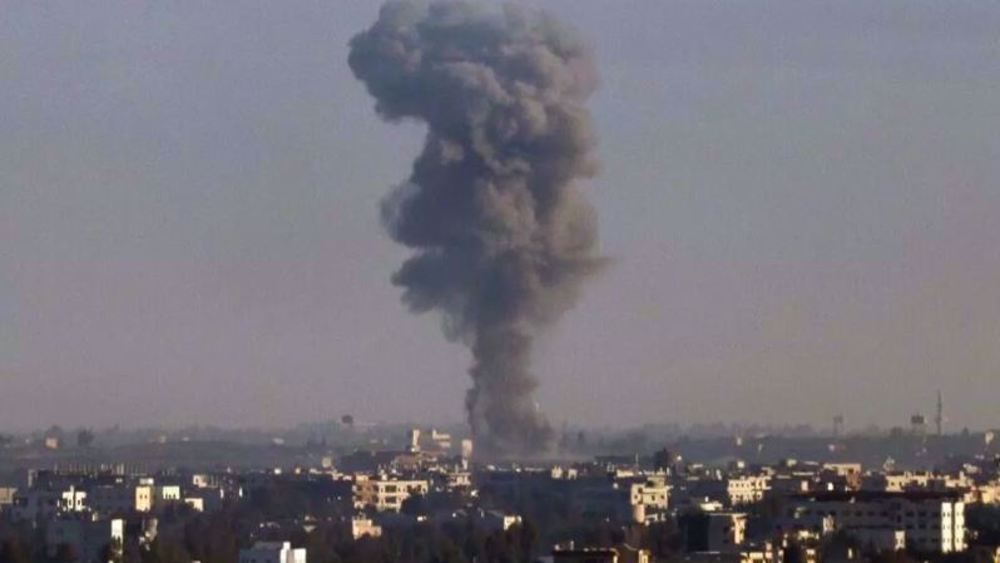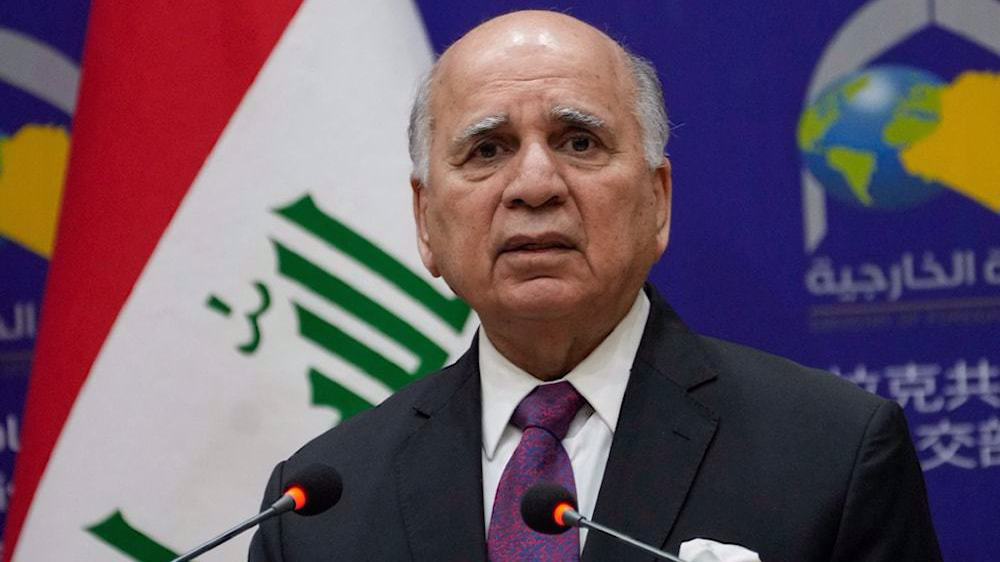Trump lifts Turkey sanctions as Syria truce turns permanent
US President Donald Trump has officially removed economic sanctions imposed on Turkey, after Ankara informed Washington that a ceasefire in its ongoing military incursion into northern Syria will become "permanent."
Trump announced Wednesday that Washington and its allied Kurdish groups have officially ceded control of northern Syria to Turkey and Russia, defending his decision earlier this month to pull forces from the region.
He insisted that Kurdish fighters, who felt "backstabbed" after the US withdrawal, were happy with the latest developments.
Trump said he had just spoken with Mazloum Abdi, the commanding general of the Kurdish-led Syrian Democratic Forces (SDF), and he was "extremely thankful."
In a tweet from a spokesman on Wednesday, Mazloum thanked Trump "for his tireless efforts that stopped the brutal Turkish attack and jihadist groups on our people."
The American head of state stated that he was right to pull American forces out of Syria, saying "let someone else fight" over the "blood-stained" country.
"We have spent $8 trillion on wars in the Middle East, never really wanting to win those wars," Trump said.
"But after all that money was spent and all those lives lost, the young men and women gravely wounded, so many -- the Middle East is less safe, less stable and less secure than before these conflicts began."
In a major U-turn in the US military policy, the White House announced on October 6 that the US would be withdrawing its forces from northeastern Syria, clearing the path for an expected Turkish incursion into the region.
Three days later, Turkey launched the offensive with the aim of purging the northern Syrian regions near its border of US-backed Kurdish militants, whom it views as terrorists linked to local autonomy-seeking militants of the Kurdistan Workers’ Party (PKK).
On Thursday, following meetings between Turkish President Recep Tayyip Erdogan and US Vice President Mike Pence, Ankara agreed to pause" the assault for five days allowing Kurdish fighters to withdraw from a determined "safe zone" north of Syria.
Pence told reporters on the same day that Ankara’s incursion "will be halted entirely on completion" of the withdrawal of the fighters.
Trump called the ceasefire a "major breakthrough" and said he didn't want the US troops caught in the middle of a Turkish-Kurdish fight.
On October 15, Washington imposed sanctions on Turkey's Ministries of National Defense and Energy and Natural Resources, as well as the heads of the two ministries and the minister of the interior.
The US president insisted that the power shift is a win for Washington and fulfills a campaign promise by taking another step in ending America's involvement in "ancient sectarian and tribal conflicts."
On Tuesday, Russia and Turkey reached a deal to establish a safe zone in northern Syria.
The deal was announced on Tuesday evening following lengthy discussions between Turkish President Recep Tayyip Erdogan and his Russian counterpart, Vladimir Putin, in Sochi.
Russian forces move in
Meanwhile, as US troops and the Kurdish fighter left areas near Turkey's border, Turkish troops and Russian troops moved in.
The first Russian patrol in northern Syria got underway on Wednesday, the defense ministry in Moscow announced.
Russian military police started deploying on Syria's border town of Kobani on Wednesday.
As part of the agreement between Putin and Erdogan, the Russian and Syrian security forces need to push the YPG, a Kurdish militant group that Ankara views as terrorists because of its links to Kurdistan Workers' Party (PKK), at least 30 km (19 miles) into Syria.
Kobani bears special significance for Kurds as the fought to ward off attempts by Daesh terrorists to seize the city in 2014-15 in one of the fiercest battles of the years-long conflict in Syria.
Russian and Turkish forces will begin to jointly patrol a 10 km strip of land in northeast Syria next Tuesday. The area was once home to American troops and their Kurdish allies.
Kremlin spokesman Dmitry Peskov warned Wednesday that Syrian border guards and Russian military police would have to fall back should Kurdish forces refuse to retreat,.
"And remaining Kurdish formations would then fall under the weight of the Turkish army," he said.
Kurdish militia commanders have yet to respond to the deal reached in Russia's Black Sea resort of Sochi.
Trump rules out Daesh resurgence
Elsewhere in his remarks on Wednesday, Trump played down concerns that the turmoil in northern Syria -- which is house to several prisons holding some 12,000 Daesh members -- could lead to a reconstitution of the Takfiri terrorist group.
While the Kurds have warned that they may no longer be able to monitor the prisoners due to the Turkish invasion, Trump said he expected Ankara to "abide by its commitment" to act as a "back-up to the Kurds."
"Should something happen, Turkey is there to grab them," he said.
Read More:
Shortly before Trump's speech, James Jeffrey, a US State Department official, testified before Congress that "over 100" Daesh prisoners had escaped so far and "we do not know where they are."
Trump said that a "small number" of US soldiers would remain nearby purely to protect oil facilities.
Hamas hails Gaza’s victory over Israel in genocidal war, its forcing enemy to agree to ceasefire
'Capitulation': Israeli officials and media concede Gaza defeat as truce unfolds
'Gaza has won': Social media users react to ceasefire with mix of relief, joy
Iran seeks South Korea’s assistance for AI, fiber-optic projects
VIDEO | Iran's 'Eqtedar' (Power) maneuver
Israel hits HTS military target in Syria for 1st time since fall of Assad
VIDEO | Press TV's news headlines
Israel has slaughtered 13,000 students in Gaza, West Bank












 This makes it easy to access the Press TV website
This makes it easy to access the Press TV website